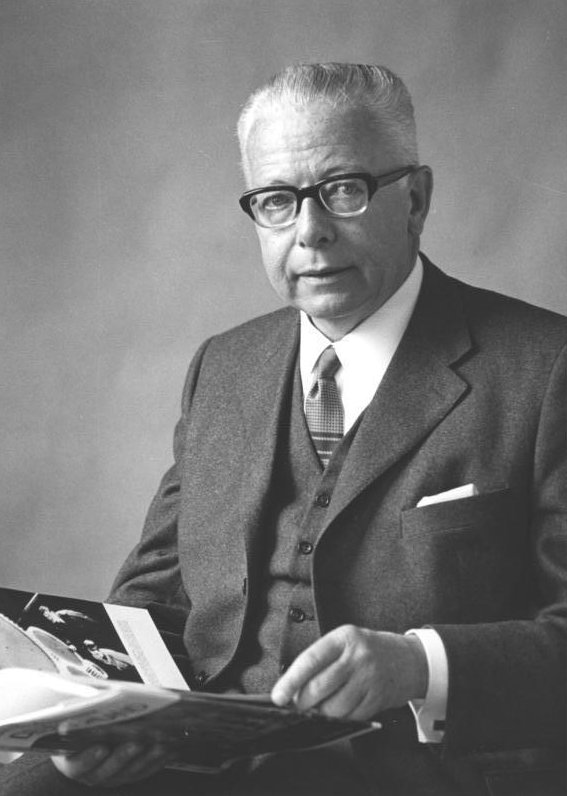Gustav Heinemann
- Nationality
- Germany
- Date of Birth
- 1899
- Date of Death
- 1976
- Political
Preference - Christian Democrat|Socialist

After studying economics and law at several German universities, Gustav Heinemann started working as a lawyer in 1929 for a key player in the German steel industry. After the Nazis grabbed power, he joined the Confessing Church, a faction of German Protestants opposed to the national socialist regime. During the war, he joined the resistance. After the war, he joined the Council of the newly-formed German Evangelical Church and was one of the signatories of the Stuttgart Declaration of Guilt of 1945. He participated in the 1948 Congress of Europe in the Hague and was appointed by the WCC as CCIA member in September 1948.
Meanwhile, Heinemann had risen politically as well, first as Mayor of Essen – which had been heavily targeted by Allied bombing during the war – and later as Minister of Interior Affairs in Adenauer’s Cabinet, with whom he had a fall-out over the question of German re-armament. He also voiced this opposition to re-armament within ECEC, of which he was a founding and often dissenting member.
Heinemann shifted his allegiance from the Christian democratic CDU to the social democratic SPD in 1957 and served multiple terms as an MP and eventually as Minister of Justice from 1966 to 1969. Thereafter, he was elected President of West Germany and served one term from 1969 to 1974.


